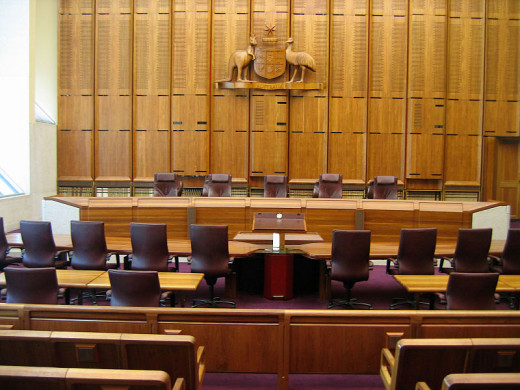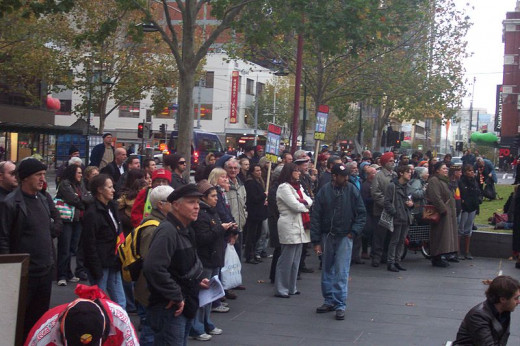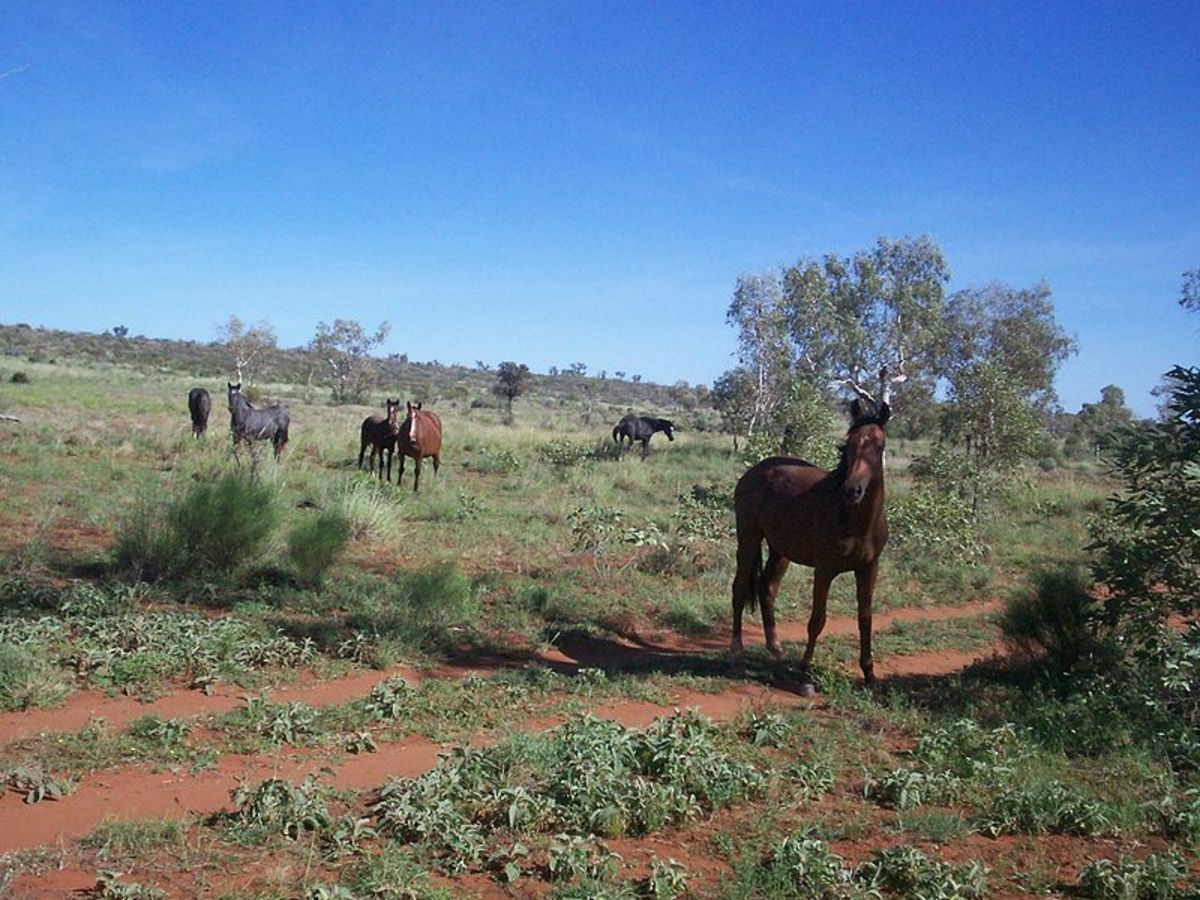Abbot Government Keeps Racial Vilification Laws in Checkmate

The Australian government is remaining steadfast on its election promise to modify the Racial Discrimination Act (RDA) despite wide criticism and concern from opposition and interest groups.
The proposed change involves repealing Section 18C in the Commonwealth legislation, which makes it unlawful to "offend, insult, humiliate or intimidate another person or a group of people" based on their "the race, colour or national or ethnic origin".
The Abbot Government's determination to scrap the section is thought to be largely driven by the prosecution of right-wing media personality, Andrew Bolt, known for his controversial and conservative views expressed in columns written for the Herald Sun, The Daily Telegraph, The Advertiser and his blog.
In several articles written in 2009 Bolt criticized fair-skinned people with indigenous lineage of choosing to embrace that heritage and identify themselves as aboriginal, despite also having caucasian ancestry from Europe. Singling out a large number of people by name, Bolt argued that their choice to present themselves as indigenous was "self-obsessed, driven more by politics than by any racial reality" so that they could earn certain benefits and entitlements.
Bolt was taken to court by members of the indigenous community, where he defended his columns as a freedom of speech. In 2011 he was found guilty of breaching Section 18C of the Racial Discrimination Act by the Federal Court who stated that Bolt had not written the articles in good faith and had included factual errors.
Following the court's decision the media begun referring to the racial vilification section of the RDA as 'The Bolt Laws / Provisions'.
Historical Context of The Racial Discrimination Act, Section 18C
The Racial Discrimination Act was passed by Parliament during the Whitlam Government in 1975. This came two years after the abolition of The White Australia Policy (1901-1973), which had influenced governments' approach and policies towards migration from Asian countries and other non-European nations for over 70 years.
The creation of the 1975 Act allowed Australia to sign and enact the International Convention on the Elimination of all Forms of Discrimination and International Covenant on Civil and Political Rights.
From the early 1980s there were proposals to add provisions to the RDA, with respect to the incitement of racial hatred and racial defamation, but the suggested changes were never implemented.
In 1994 Attorney-General Michael Lavarch reported that gaps had been found "in the protection provided by the Racial Discrimination Act", drawing on the conclusions of The National Inquiry into Racist Violence, The Royal Commission into Aboriginal Deaths in Custody and The Australian Law Reform Commission’s Multiculturalism and the Law Report.
To address growing concerns about racial vilification, particularly towards indigenous communities, the Keating Government implemented the Racial Hatred Act in 1995 that introduced a number of new provisions to be included in the RDA. These included Section 18C (Offensive behaviour because of race, colour or national or ethnic origin), 18D (Exemptions) and 18E (Vicarious Liability).
Lavarch stated that these amendments to the Racial Discrimination Act “intended to close a gap in the legal protection available to the victims of extreme racist behaviour" as well as "provide a safety net for racial harmony in Australia, as both a warning to those who might attack the principle of tolerance and an assurance to their potential victims".

Where Else Has The Racial Discrimination Act Been Relevant?
The RDA has been used in a number of landmark court cases that have had a significant impact on ethnic groups, particularly indigenous communities in Australia.
In 1982 the RDA's validity and ability to override state laws were confirmed by the High Court after ruling against the Queensland Government, led by Premier Joh Bjelke-Petersen,for rejecting John Koowarta's attempts to purchase a Crown lease of pastoral property, based on the administration's opposition to Aborigines buying leasehold land.
Koowarta claimed that the Queensland Government's decision breached Section 9, which makes it unlawful to impair or nullify a person's freedoms (e.g. economic, political, social cultural etc) based on their race; and Section 12, which prohibits any one from refusing to lease, sell or occupy land, accommodation and buildings to a prospective client due to their race, color, ethnicity or relatives of the interested party.

Other high profile cases include Eddie Mabo's High Court battle against the Queensland Government over native land rights (1988 & 1992); a 1995 lawsuit against the Western Australian Government regarding the Native Title Act (1993); and Jones vs Toben where the RDA was for the first time applicable to antisemitism and racial vilification on the internet.
In recent years the RDA has been a focus of a number of non-governmental and interest groups, following its partial suspension during a 2007 federal intervention in remote Aboriginal communities located in the Northern Territory, following reports of children being subject to sexual and domestic abuse.
The operation saw the Australian military occupy targeted communities without giving prior notification to the Chief Minister or residents, while the Commonwealth Government introduced and enforced legislation. This included bans and regulations on the sale of alcohol and pornography as well as the mandatory acquisition of 5-year leases on indigenous declared land among other things.

To ensure that the intervention didn't result in any legal ramifications under Section 10 of the RDA (which ensures that no ethnic group is subject to a law that deprives them of a right enjoyed by others), the Commonwealth Government suspended part of the Act, therefore depriving indigenous communities of the freedom to challenge the Government's intervention.
Racial Discrimination Act, Section 18C
(1) It is unlawful for a person to do an act, otherwise than in private, if:
(a) the act is reasonably likely, in all the circumstances, to offend, insult, humiliate or intimidate another person or a group of people; and
(b) the act is done because of the race, colour or national or ethnic origin of the other person or of some or all of the people in the group.
Note: Subsection (1) makes certain acts unlawful. Section 46P of the Australian Human Rights Commission Act 1986allows people to make complaints to the Australian Human Rights Commission about unlawful acts. However, an unlawful act is not necessarily a criminal offence. Section 26 says that this Act does not make it an offence to do an act that is unlawful because of this Part, unless Part IV expressly says that the act is an offence.
(2) For the purposes of subsection (1), an act is taken not to be done in private if it:
(a) causes words, sounds, images or writing to be communicated to the public; or
(b) is done in a public place; or
(c) is done in the sight or hearing of people who are in a public place.
(3) In this section:
public place includes any place to which the public have access as of right or by invitation, whether express or implied and whether or not a charge is made for admission to the place.
Exemptions Under Section 18D
Section 18C does not render unlawful anything said or done reasonably and in good faith:
(a) in the performance, exhibition or distribution of an artistic work; or
(b) in the course of any statement, publication, discussion or debate made or held for any genuine academic, artistic or scientific purpose or any other genuine purpose in the public interest; or
(c) in making or publishing:
(i) a fair and accurate report of any event or matter of public interest; or
(ii) a fair comment on any event or matter of public interest if the comment is an expression of a genuine belief held by the person making the comment.
Abbot Government's Proposed Changes
Removal of the section in its current state from the RDA was promised by Prime Minister Tony Abbott in August 2012 on the basis that freedom of speech should not be restrained ''just to prevent hurt feelings''. The Government is currently considering completely repealing the section or replacing it with stronger language that outlaws "vilifying" people on the basis of race" rather than retaining the RDA's "insult" provision that some argue places a limitation on free speech.
According to Chris Berg, a researcher with The Institute of Public Affairs (IPA), the changes that the Abbot Government are considering may include removing liability for language and action that offends or insults others based on their ethnicity.
Attorney-General George Brandis says that “The government is working to restore the right balance between freedom of speech and protecting people from racial vilification. These two values are not inconsistent.”
Repealing 18C: Those in Favor
One group attempting to hold the Government to their initial promise of completely removing Section 18C from the RDA is the right-wing, Liberal Party-aligned think-tank, The Institute of Public Affairs (IPA). According to IPA Director, Simon Breheny, the section in question creates a significant limitation on the human right to freedom of speech.
“Section 18C must be repealed in its entirety,” Breheny told The Australian. “A full repeal is the only way to restore freedom of speech. To compromise on the repeal of section 18C is to compromise on free speech.”
To quell concerns from ethnic, indigenous and religious groups over the proposed changes to the RDA, Brandis says that he is considering a separate amendment for the Commonwealth Criminal Code, which will outlaw racial vilification without impinging on freedom of speech.
James Paterson, the director of development and communications at the IPA, argues that such a change to the Criminal Code may be potentially worse than retaining Section 18C.
“We’re very concerned about that for a couple of reasons,” he told The Guardian. “One is you are being held liable for the feelings of other people … they can go to jail for it. Basically you’re being punished for causing someone to commit a thought crime".
The IPA's strong stance on scrapping the racial vilification provision is partially inspired by Canada's recent repeal of Section 13 from their Human Right's Act, a provision regarding hate speech over the phone and internet. The amendment removes the authority of human rights commissions to investigate hate speech online and request that violating websites be taken down. The repeal has apparently been welcomed by conservative politicians and white supremacy groups, such as Storm Front.
Adrienne Stone, Director at the Centre for Comparative Constitutional Studies at the University of Melbourne, told SBS that repealing Section 18C in the RDA is not the same as Canada scrapping Section 13 in their Human Rights Act, due to important differences in the legislation. She does however see merit in rewording Section 18C, raising its threshold so that it would only apply "to speech that was seriously insulting, humiliating or intimidating, or speech that incited hatred".
Professor of Law at Queensland University, James Allan, dismisses arguments that scrapping Section 18C will result in increased hate speech, believing that Australians are smart enough to challenge and silence outspoken racists and that it's a "plain distrust of the abilities of one's fellow citizens to see through the rantings of neo-Nazis that requires us to have these laws".
Looking overseas, Allan argues that immigrants and people of various religions are better integrated and receive greater treatment in North America, which has no hate speech laws, compared to France and other European countries that have very strong laws.
Among those in favor of modifying or repealing Section 18C are Tim Wilson, Human Rights Commissioner and Neil Brown QC.
Repealing 18C: Those Opposed
Prior to The Coalition taking office as the Federal Government in September 2013, former Labor Party Attorney-General Mark Dreyfus urged the then Opposition Leader, Tony Abbot, to back away from his pledge of dissolving the provisions covered under Section 18C, insisting that it was inconsistent with The London Declaration on Combating Antisemitism. Made in 2009, the Declaration was supported by politicians worldwide, including former Labor Prime Minister Julia Gillard as well as Tony Abbot and every other Federal Coalition Member of Parliament.
A large number of ethnic groups have voiced their opposition to the Government's plans to repeal or rewrite Section 18C. Since last year more than 150 community and human rights groups have rallied in favor of keeping the Act as it is, claiming that it plays a "critical role in protecting people from discrimination and hate speech based on race, colour or culture".
Among those who are against changes to the RDA are the National Congress of Australia's First Peoples, the Arab Council Australia, the Australian Hellenic Council, the Executive Council of Australian Jewry, the Chinese Australian Forum, the Vietnamese Community in Australia, the Lebanese Muslim Association, the Armenian National Council of Australia, the United Muslim Women Association and All together Now.
One of the staunchest opponents to the Government's intentions is Tim Soutphommasane, Australia's Race Discrimination Commissioner. Soutphommasane has warned that the proposed changes to the RDA may 'licence racial hatred'' as "'it may encourage people to think there is no harm in dealing out racial vilification".
According to Soutphommasane "the act is more than just an instrument for guaranteeing equal opportunity for all, regardless of their race. It is also a statement that there must be racial tolerance in a multicultural society. That we regard civility as a cardinal value and social cohesion as a necessity". He has criticized the Government's argument that Section 18C in its current form infringes on Australians' right to free speech, as exemptions in Section 18D protect those making a statement in good faith".
Soutphommasane also states that free speech has never existed as an absolute or been entirely unrestricted in Australian society.
"We have many laws that limit our freedom of speech, laws that apply to defamation, advertising, obscenity, fraud, public order, national security - to name a few".
QC Neil Brown says that he supports amendments to the Act but has warned Senator Brandis that repealing Section 18C in its entirety may be seen as "giving a blank cheque to those of a racist disposition to engage in racist activities or as even encouraging them".
The Australian Greens have vowed to continue urging The Coalition Government to rethink its plans to repeal the Section, following a seemingly racially motivated attack on a Jewish family. Dissent has also been expressed within the Coalition, particularly Indigenous Coalition MP Ken Wyatt and Warren Mundine, the chairman of the Government's Indigenous Advisory Council. .
UPDATE
25/03/2014
The Federal Government confirmed that they've given the green light to removing protection against offending, insulting and humiliating somebody based on their ethnicity. This means that only "intimidation" will be covered by Section 18C.
Bibliography
- 'At a glance: Racial vilification under sections 18C and 18D of the Racial Discrimination Act 1975 (Cth)', Human Rights and Equal Opportunity Community, December 12 2013
- Bolt, A., 'It's so hip to be black', Herald Sun, April 15, 2009.
- Bolt, A. 'White fellas in the black', Herald Sun, August 21, 2009.
- 'Bolt breached discrimination act, judge rules' ABC News, September 29 2011.
- Freri, M. 'Groups oppose Racial Discrimination Act change', World News Radio, November 22 2013.
- 'Guide to the Law - Landmark Cases under the Racial Discrimination Act 1975', Human Rights Equal Opportunity Commissioner (Accessed in March 2014 from the HREOC website)
- Hurst, D., 'Tony Abbott warned anew to repeal part of Racial Discrimination Act', The Guardian, Wednesday 12 March 2014.
-
'Introduction of the racial vilification provisions in the Racial Discrimination Act 1975 (Cth)', Background Paper, National Congress of Australia's First People, December 2013.
- 'Law change could see discrimination rise', UQ News, November 15 2013
- Levey, G.B & Pringle, H. 'Why the 'Bolt laws' should stay', The Drum (ABC), November 28 2013.
- Migliorino, P. 'Attorney-General George Brandis' review of racial vilification laws a blow for protection', Sydney Morning Herald, November 25, 2013.
- Peake, R. 'Tony Abbott faces challenge over dilution of racial discrimination laws', The Sydney Morning Herald. March 3 2014.
- Soutphommasane, T.'Racism laws show society's strength', The Age, November 9, 2013
- Sutton, R. 'Changes to Racial Discrimination Act Mooted', SBS, September 27 2013.
- Tencer, D., 'Bill C-304: Hate Speech Clause's Repeal Gives White Supremacists Rare Moment Of Glee', Huffington Post Canada. June 8 2013.
- 'The Suspension and Reinstatement of the RDA and Special Measures in the Northern Territory National Emergency Response', Human Rights Equal Opportunity Commissioner (Accessed in March 2014 from the HREOC website).
- Woods, Michael., 'Hate speech no longer part of Canada’s Human Rights Act', National Post, June 27, 2013.
- Wright, J, 'George Brandis to repeal 'Bolt laws' on racial discrimination', Sydney Morning Herald. November 8, 2011








